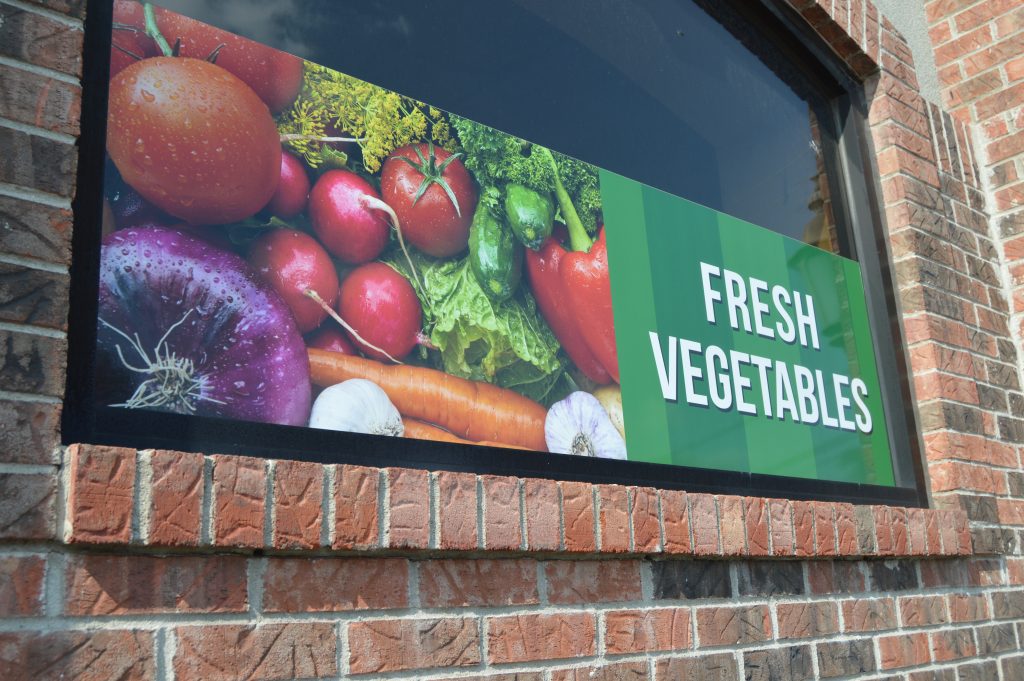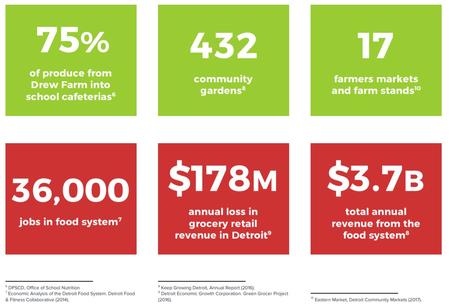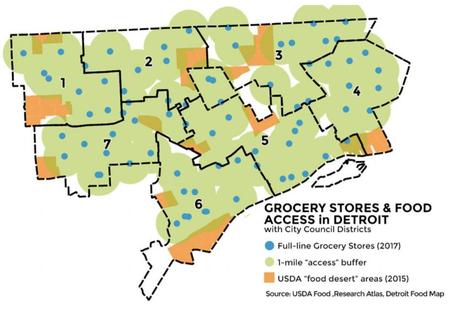Data Show Where Healthy Food Gaps Exist in Detroit [MAPS + REPORT]
The 8th annual Detroit Food Summit seeks to improve access to nutritious food.

Here are some facts about food in Detroit:
- Almost half of all households in the city are “food insecure”. That is, they don’t have physical or financial access to safe, sufficient, and nutritious food to sustain them every day.
- 40 percent of all households use the federal Supplemental Nutrition Assistance Program. Yet almost 20 percent of SNAP-eligible households are not enrolled in the program.
- Another federal program, Women, Infants, and Children (WIC) feeds almost 1 in 5 children in Detroit.
The Detroit Food Policy Council compiled these statistics in its latest Detroit Food Metrics Report. The Council holds its 8th annual food summit March 8-9, 2018. Executive Director Winona Bynum says Detroit has 74 full-line grocery stores, but about 30,000 residents don’t have access to them.
“There are some Detroiters that just don’t live near places that provide healthy food,” Bynum says. “We’ve had a lot of improvement in grocery stores over the past ten years, but there’s still work to be done.”

The Detroit Food Policy Council’s nonprofit mission is to build a sustainable food system citywide. Its members include people who work in the food industry, city government representatives, and community members. Bynum says another obstacle to having healthy food is a lack of economic opportunity.
“The food system right now is the third-largest employer in the city,” Bynum says. “We’re working to improve that and make those jobs better.”

The 2017 Food Metrics Report also shows that urban agriculture is filling some, if not all, of the gaps in available food in Detroit. There are more than 400 community gardens and at least 17 farmers markets and farm stands. Bynum says the council played a key role in that by supporting the city’s 2013 agriculture ordinance.
“Detroit is actually one of the leaders in the nation of urban agriculture, that is, actually growing food,” Bynum says.

Bynum says the Detroit Food Policy Council is focused on finding solutions to the city’s food problems. She says people can help in many ways.
“We’re a nonprofit, so any kind of support people can give financially, that helps us to do our work,” Bynum says. “Either your time, your finances, or even a good word.”

People who want to attend the 2018 food summit can register on site. It runs March 8-9 at the A. Alfred Taubman Center for Design Education, 460 W. Baltimore Ave.
You can read the Detroit Food Metrics Report below. Click on the audio player to hear the conversation.
Detroit Food Metrics Report by WDET 101.9 FM on Scribd
